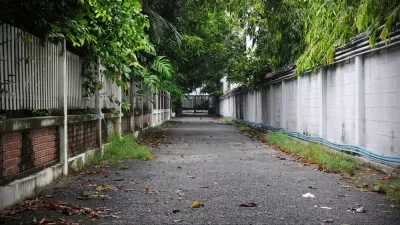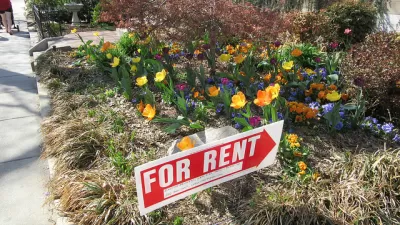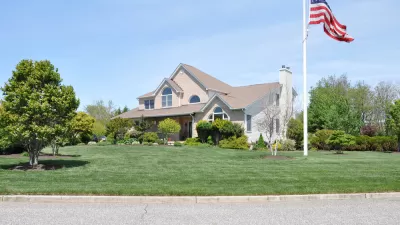The federal government has no official definition of suburban, even though a majority of Americans say they live in suburban communities.

Shawn Bucholtz and Jed Kolko describe one of the facts of American life: most U.S. residents live in suburbs, but the federal government doesn't actually categorize communities as suburban. The federal government makes a distinction between urban and rural, but not for suburban.
"The lack of an official federal definition of suburban means that government data are not reported separately for suburban areas. That makes it hard to measure the reach and impact of federal programs and to produce vital statistics about Americans and their communities," according to the article.
In a small step in the right direction, the 2017 American Housing Survey (by the Office of Policy Development and Research) recently released data finding "about 52 percent of people in the United States describe their neighborhood as suburban, while about 27 percent describe their neighborhood as urban, and 21 percent as rural." That's a majority, and it echoes previous surveys undertaken by outside the government.
In addition to advocating for the federal government o gather data in a way that reflects the way Americans view their communities, the article also tries a few other angles of approach for revealing more about the statistical realities of the suburbs in the United States.
FULL STORY: America Really Is a Nation of Suburbs

Alabama: Trump Terminates Settlements for Black Communities Harmed By Raw Sewage
Trump deemed the landmark civil rights agreement “illegal DEI and environmental justice policy.”

Study: Maui’s Plan to Convert Vacation Rentals to Long-Term Housing Could Cause Nearly $1 Billion Economic Loss
The plan would reduce visitor accommodation by 25% resulting in 1,900 jobs lost.

Planetizen Federal Action Tracker
A weekly monitor of how Trump’s orders and actions are impacting planners and planning in America.

Waymo Gets Permission to Map SF’s Market Street
If allowed to operate on the traffic-restricted street, Waymo’s autonomous taxis would have a leg up over ride-hailing competitors — and counter the city’s efforts to grow bike and pedestrian on the thoroughfare.

Parklet Symposium Highlights the Success of Shared Spaces
Parklets got a boost during the Covid-19 pandemic, when the concept was translated to outdoor dining programs that offered restaurants a lifeline during the shutdown.

Federal Homelessness Agency Places Entire Staff on Leave
The U.S. Interagency Council on Homelessness is the only federal agency dedicated to preventing and ending homelessness.
Urban Design for Planners 1: Software Tools
This six-course series explores essential urban design concepts using open source software and equips planners with the tools they need to participate fully in the urban design process.
Planning for Universal Design
Learn the tools for implementing Universal Design in planning regulations.
Caltrans
Smith Gee Studio
Institute for Housing and Urban Development Studies (IHS)
City of Grandview
Harvard GSD Executive Education
Toledo-Lucas County Plan Commissions
Salt Lake City
NYU Wagner Graduate School of Public Service





























